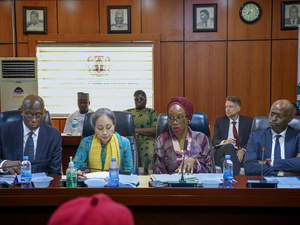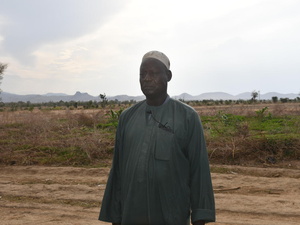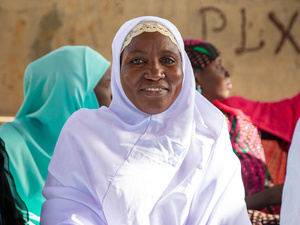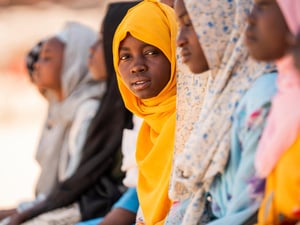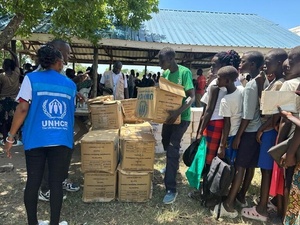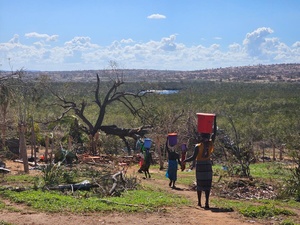UNHCR and the Zambian government commence a socioeconomic survey targeting refugees and their host communities
UNHCR and the Zambian government commence a socioeconomic survey targeting refugees and their host communities

A Forced Displacement Survey (FDS) interview in Mantapala Settlement in Nchelenge District of Luapula Province.
Lusaka – UNHCR, the UN Refugee Agency, in partnership with the Government of the Republic of Zambia recently launched a Forced Displacement Survey (FDS) to assess the socio-economic situation of refugees and local host communities in Zambia. UNHCR’s FDS marks the first nationally representative study of its kind in Zambia.
The FDS will map vulnerabilities and living conditions, access to services like education and healthcare, analyse economic activity and levels of self-reliance, and identify coping strategies and aspirations. These insights will be vital for the inclusion of refugees in development programmes, national statistics, and planning systems. It will facilitate their resilience and self-reliance through development action and support Zambia in achieving its commitments to the Global Compact on Refugees.
Ms Preeta Law, UNHCR Representative in Zambia, emphasized the importance of the survey, and said, “The Forced Displacement Survey is more than just a data collection exercise. It serves as a vital tool to include host and refugee communities in local planning for a sustainable government-led response to forced displacement that leaves no one behind in Zambia’s development journey. By making refugees and their Zambian host communities visible and counted, we can design inclusive policies and programs that deliver long-term, sustainable local solutions.”
Over a three-month period from April to June 2025, survey teams will collect data in Lusaka and in three refugee settlements: Meheba, Mantapala, and Mayukwayukwa. The survey is funded by the European Union with support from UNICEF and will be conducted in partnership with the Zambia Statistics Agency (ZamStats) and the Office of the Commissioner for Refugees (COR). Survey teams will interview 4,000 households, including refugees and the Zambian communities who live in and around refugee settlements. Although their legal statuses differ, both groups often face similar challenges such as limited access to services, economic hardship, and heightened protection risks.
Demonstrating its steadfast commitment to humanitarian principles and regional solidarity, Zambia continues to uphold an open-door policy and a National Refugee Policy that aims to strengthen the role that Zambia plays in welcoming and hosting people who were forced to flee their home countries. The country hosts over 109,000 asylum-seekers, refugees, and former refugees from the Democratic Republic of the Congo, Burundi, Angola, Somalia, Rwanda, and other countries. This population comprises 28,490 people living in urban areas like Lusaka, Ndola, and Kitwe, and more than 81,000 people in three settlements.
Between 1 January and 31 March, COR registered 3,276 new asylum-seekers. Most arrived from the DRC, escaping worsening violence that includes killings, sexual violence, abductions, and other serious human rights abuses.
Zambian authorities, in collaboration with national and international partners, continue to provide protection and essential services to ensure protection and support for all persons in need of international protection.
For more information, please contact:
- Stephanie Perham, [email protected]
- Kelvin Shimoh, [email protected]




